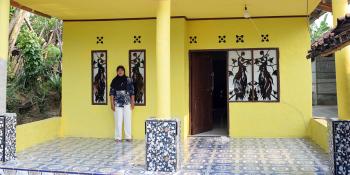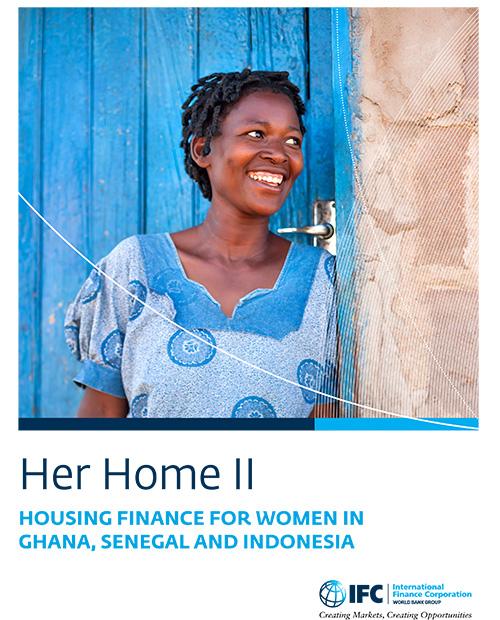
Empowering women through housing finance
A report “Her Home II” outlines challenges and provides recommendations for women accessing housing finance in Ghana, Senegal and Indonesia
INDONESIA (June 2023) — In Indonesia, only one in five women in rural areas could claim to own their homes, as a 2023 report on housing finance in select countries showed. Nurhayati, who lives in West Java province, had to put on hold her dream of building a new home though she already bought a plot of land. Due to the economic fallout of the COVID-19 pandemic, her husband’s weekly earnings dropped to one fifth of what he used to make. He had to take on construction jobs to make ends meet.
While Nurhayati stayed home to take care of their three children, she was determined to improve her family’s living condition. She took out loans totaling 20 million rupiah (about US$1,280) from Indonesian microfinance institution KOMIDA to build a two-bedroom house incrementally. Nurhayati succeeded despite the hurdles that Indonesian women faced in accessing housing finance. The challenges included lower participation in the workforce, greater likelihood of informal work, and lower incomes than men.
A report “Her Home II: Housing Finance for Women in Ghana, Senegal, and Indonesia” by the International Finance Corporation, launched in mid-2023, highlighted these challenges. Ghana and Senegal were the other countries featured. The report included data from research on Indonesia that were provided by Habitat for Humanity’s Terwilliger Center for Innovation in Shelter. The Terwilliger Center has been working in Indonesia with microfinance institutions to develop and grow the scope of housing finance products targeted at female-led households.
The estimated housing finance market size for female-headed households in Indonesia totals US$51.88 billion. Of this figure, nearly 80% is for new housing demand while home renovations and extensions make up the rest of the housing finance loans.
Some of the key findings for Indonesia in the report are:
- A majority of women in Indonesia, both in rural and urban areas, do not have the title to their property. Formally, the percentage of female rural dwellers owning their home drops to less than 4%. This lack of assets (which could be used as collateral), limits women’s capacity to apply for loans on their own.
- Less than half of working-age women are employed. Based on the cultural norm, women are expected to manage the household and raise children. Lower participation in the workforce, greater likelihood of informal work and lower incomes than men hamper women’s to formal lending.
- A significantly higher proportion of women saved money compared with men in Indonesia. However, men were more likely to use banks, while women tended to save more outside of the financial system, which makes underwriting women’s savings much more difficult when they request loans.
Recommendations for Indonesia, which overlap with those for Ghana and Senegal, include the following:
- Provide new business models that rapidly and efficiently expand housing finance access for women who work in both informal and formal sectors.
- The use of gender disaggregated data can help financial institutions to develop customized solutions for women.
- Gender-based targets can help ensure equitable distribution of government funding in the housing sector.
- Develop incentives for land tenure and property registration in women’s names so women can pledge property title as a collateral for housing loans.
- Increase access to housing finance for women. Not only does this grow the economy but it also improves women’s financial resilience. Housing finance is also a largely untapped market for financial institutions in developing countries.
